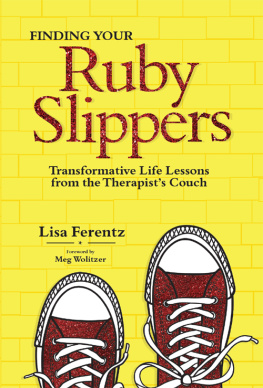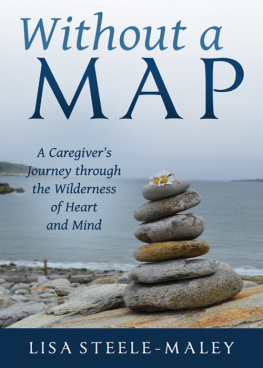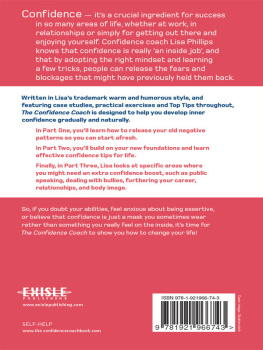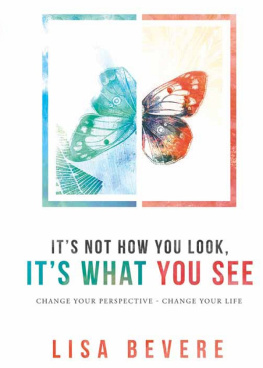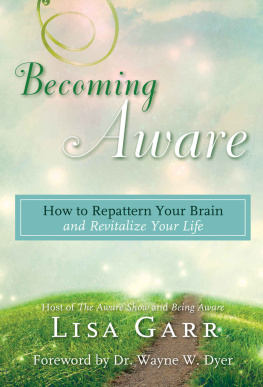Praise for Finding Your Ruby Slippers

Lisa Ferentz has written a thoughtful, engaging and practical book that invites readers to look at themselves and their lives without judgment. Her clients are lucky to have her voice dispensing these words, and now the rest of us are, too.
Meg Wolitzer,
New York Times bestselling author of The Interestings
A magical guide to conquering our fears, phobias and emotional pain! With a warm and affirming tone that conveys, I get it!, Lisa Ferentz shares years of accumulated wisdom grounded in research but communicated as if she and the reader were simply sitting side-by-side, deep in conversation
Janina Fisher, PhD,
author of Healing the Fragmented Selves of Trauma Survivors
I absolutely love this book! A resource for people wanting to heal into the possibilities embodied in their present-day life, Lisa offers solid information and practices to free oneself from old patterns and behaviors. The questions at the end of each chapter deepen the readers ability to recognize and experience what has held them back while also pointing them towards the healing that is available and possible in their current life. I recommend this book not only for individuals who seek to heal but also for clinicians who want solid and useful tools they can use with their clients and for their own personal growth.
Nancy J. Napier, MA, LMFT,
author of Recreating Your Self, Getting Through the Day, and Sacred Practices for Conscious Living
I know Lisa Ferentz to be a very wise and talented therapist so it is not surprising that the wisdom culled from her long career would be simple but profound. You will find in the these pages things that you often say to yourself unconsciously, followed by Lisas empathic yet liberating perspective on them. Enjoy and heal!
Richard Schwartz, PhD,
developer of the Internal Family Systems Model of Psychotherapy
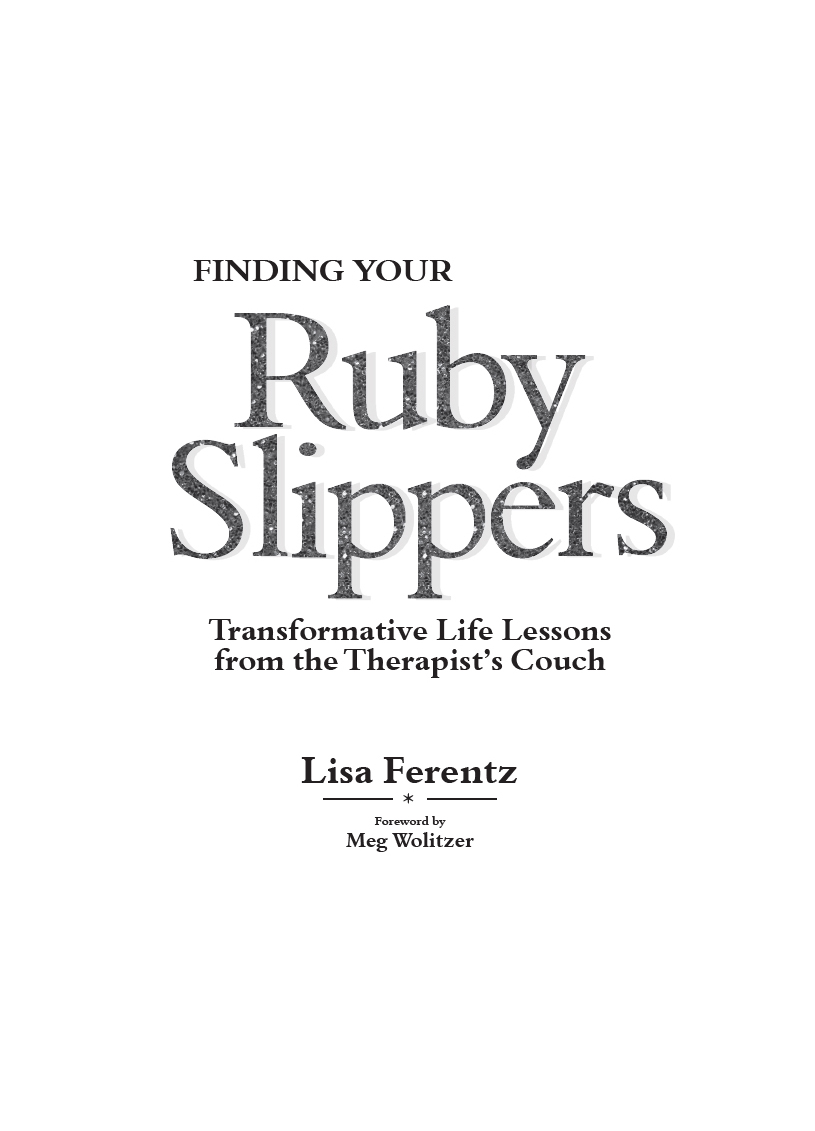
Copyright 2017 by Lisa Ferentz
Published by
PESI Publishing & Media
PESI, Inc.
3839 White Ave
Eau Claire, WI 54703
Cover: Amy Rubenzer
Editing: Amy Forsberg
Layout: Bookmasters, Amy Rubenzer, Jennifer Wilson-Gaetz
ISBN: 9781683730422
All Rights Reserved.
Printed in the United States of America

About The Author


Lisa Ferentz , LCSW-C, DAPA, is the president and founder of The Ferentz Institute, which provides continuing education and training to mental health professionals. She is an internationally acclaimed speaker, educator, author, and highly sought after clinical consultant. She has been in solo private practice for over 32 years specializing in trauma, and in 2009 was named the Social Worker of the Year by the Maryland Society for Clinical Social Work. She is the author of Treating Self-Destructive Behaviors in Trauma Survivors: A Clinicians Guide now in its second edition and Letting Go of Self-Destructive Behaviors: A Workbook of Hope and Healing. You can follow Lisas work at www.lisaferentz.com, Facebook, LinkedIn, Twitter and www.psychologytoday.com
Dedication

For Kevin, my soul mate, best friend, and superb editor. Thank you for showing me how to live life full on and for giving me the love, support, guidance, and encouragement that makes it all possible and makes it so much fun. And thank you for reminding me, many many, years ago, that I was wearing the ruby slippers all along.
Foreword

To read this book is to be in the presence, for 199 pages, of someone with compassion, smarts and insight. I have to say I was not surprised that Lisa Ferentzs book would read like this. I first met her when we were sixteen years old, and despite the fact that at the time she was not yet an acclaimed therapist, speaker, writer or teacher, but instead just another tenth grade theater nut like me, I was aware that she simply knew things. Things that I did not know. In her bedroom at her house on Long Island there was a bunkbed, and we would lie above and below, talking about what was important to us. Often, she would make a casual remark that I would think about for a long time afterward.
So it seemed right when Lisa eventually became a social worker. Though I was no longer an accidental bunkbed guinea pig for her burgeoning, instinctive therapeutic ideas, I watched her grow up and work with dedication on a career that was devoted to helping her clients try to find ways to break patterns that were painful to them, and also to help them be who they told her they wanted to be. It was gratifying to hear that not only were people helped in important ways by my high school friend, but also that she was so dedicated to her work, and did not seem discouraged by the obstinacy of some human traits.
That lack of discouragement, and in fact its oppositea deep and abiding encouragementinforms this helpful book. Lisa Ferentz comes by it naturally; its who she is, and its clearly been enhanced not only by what shes learned over time through education and reading and the general task of living, but also, of course, by what shes seen in her practice. She has described for me the pleasures of seeing people change. For me as a fiction writer, this is good and interesting news. Fiction writers often need to show their characters making the same mistakes again and again. Readers can get frustrated with this (and they sometimes let you know), because they too want to see glimmers of change. Sometimes we give it to them, but often we dont. In a novel, change often comes from somewhere else, someplace that is perhaps outside the realm of emotions.
In therapy, though, at least as I perceive it from talking to Lisa, change frequently happens, though it can be glacially slow or rapid or even hard to see if you arent paying close enough attention. It can also happen and then unhappen, but thats all right too. What I got from this book is that the process of understanding the work one does on oneself, and then maybe the accidental dismantling of that work, and then more of the work againis something best done without judgment or impatience.
Lisas book advocates for not being hard on ourselves, but for simply paying attention. I sometimes think about the famous quote from Freud in which he wrote that an analyst should listen with evenly suspended attention. I like this description, because its neutral, practical, and, in its own way, encouraging. I am certain that Lisa Ferentz listens this way in her practice (I know she used to do that, back when we were sixteen), and in her fine book she encourages her readers to do that as well: to listen to their own selves and take hope from what they find there.
Next page
